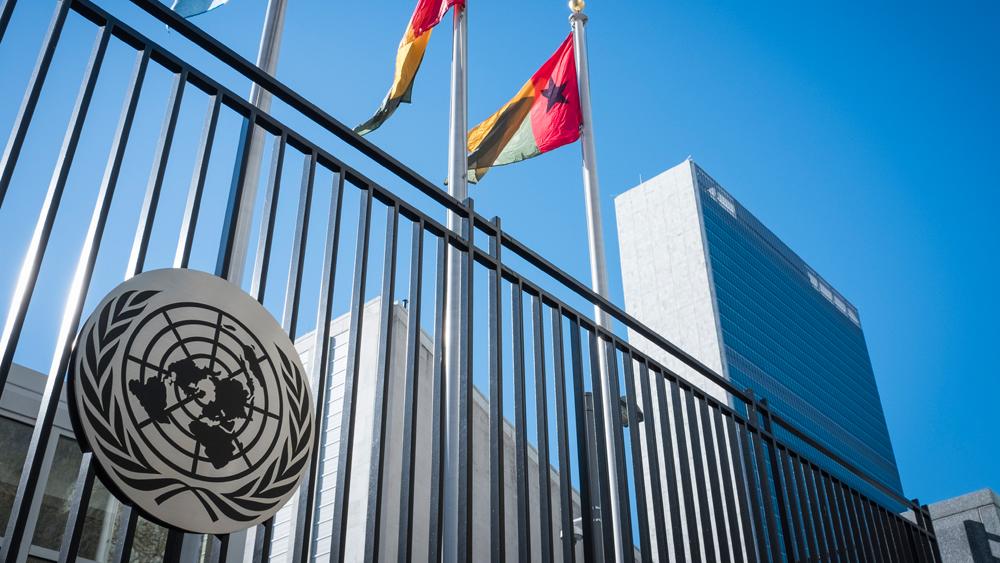Remarks to the Press by Permanent Representative Vassily Nebenzia following the adoption of UNSC resolution on cross-border mechanism of humanitarian deliveries to Syria
Q: Do you believe that no vote is needed in January?
A: Let's see what happens in January. Because you saw how it is all framed.
Q: But if the Secretary-General comes back and says we still need it? It still goes on?
A: That’s what the report he is going to provide will solve.
Q: You described it as a historical moment…
A: Because it's no secret it's the result of our agreement with the US.
Q: Why didn't you engage with the Council on this?
A: We engaged with the Council, we told the Council about our red lines, to which they never listened, and then we had to do it the other way.
Q: But you were engaging with the US constantly on that, weren’t you?
A: Yes, we were.
Q: Is this a turning point for Russia-US relations?
A: We hope that it might be a turning point. That is indeed in line with what [Presidents] Putin and Biden discussed in Geneva.
Q: A turning point just here or broadly?
A: Hopefully broadly. That demonstrates that we can cooperate when there is a need and when there is a will as well.
Q: So you will reassess all this in July next year.
A: We'll inevitably have to come to it in January, when the first six-month period expires, and see the progress that has been made not just on the CBM, but on crossline deliveries as well. Last year we extended the CBM for 12 months in the expectation that things would change for the cross-line as well.
Nobody challenges cross-line, but nothing happened, not a single convoy. It is ironic, but the single convoy which Damascus gave green light to in April 2020 was never realized.
Q: You had your red lines like you said. But why did you decide to compromise?
A: Because in particular, we do care about the Syrian people and because this draft contained elements that had been absent from the previous drafts. And it was a compromise that the other side made. You know, compromise is deducting something from positions of both sides. It's not a one-way route.
Q: Do you think that next year this mechanism should be brought to an end?
A: Do you mean after a year passes?
Q: Yeah.
A: Let's see what happens then. That depends on the progress of the humanitarian situation in Syria in general and in Idlib in particular.
Q: Was this a US-Russian draft proposal?
A: Yes, that is a draft that was agreed between us.
Q: And that was the draft that was voted on by the Council.
A: Yes.
Q: Ambassador, you said yesterday “twelve months won't fly”. Now you have a resolution with six months followed by six months, six plus six equals twelve.
A: You are good at calculating. Yes, I think six plus six is twelve. But mind the way it is phrased - it was not unintentional. It is not straight twelve months. And that was our red line, because you cannot expect that it will go without any assessment and reassessment of what's happening on the ground. That's why the second six-month period will be conditional on the progress which we'll make in other areas of humanitarian and political situation in Syria. We hope that it will also facilitate a political solution.
Q: But no vote in January?
A: That is a question that I cannot give you an answer to. But there will be twelve months (6+6 model) provided that we see real progress on the ground and in the work of the UN in that area.
Q: What does it mean, “the practical measures to address the socio-economic impact of COVID”? What do you mean by that?
A: Do you mean the language of the resolution?
Q: Yes, it’s in para.4.
A: COVID is an issue everywhere in Syria - be it in the territory under the control of the government and in Idlib as well.
Q: But “socio-economic” means funds and money to address the socio-economic situation. So who would fund this?
A: I think that the international community should be funding that. But you heard what UNSC President said when speaking in his national capacity. He said that they would not provide a single cent unless they saw a credible political process. To that we tell them: “You are not doing this assistance for the Syrian government, you are doing this for the Syrian people. And that cannot be conditional. Whatever you might think of the Syrian government, the Syrian people should not suffer.”
Q: Did you get any promise or maybe talks about easing the sanctions? The American sanctions.
A: We raise that every time we speak on Syria.
Q: Did you get anything from your American counterpart?
A: We are talking to them on it.
Q: Do you find them open on this?
A: Let's see.
Q: In the Secretary-General’s report, what are you specifically looking for?
A: Transparency and clarity.
Q: But it is transparent. What else?
A: There are many issues which are not transparent and which are now in the resolution: the mechanism, the way how it is being distributed, who the partners are, etc. They say they need to protect humanitarian workers. But I think that transparency will only help protect those humanitarians. When we know where they are and what they do, it will help.
Q: And what’s the status of the war? Is it winding down? Is Idlib the last holdout?
A: Idlib is not under control of the Syrian government, but there is no active war there. There are provocations by terrorists who operate there. But I cannot say that we have a war in Syria now.
